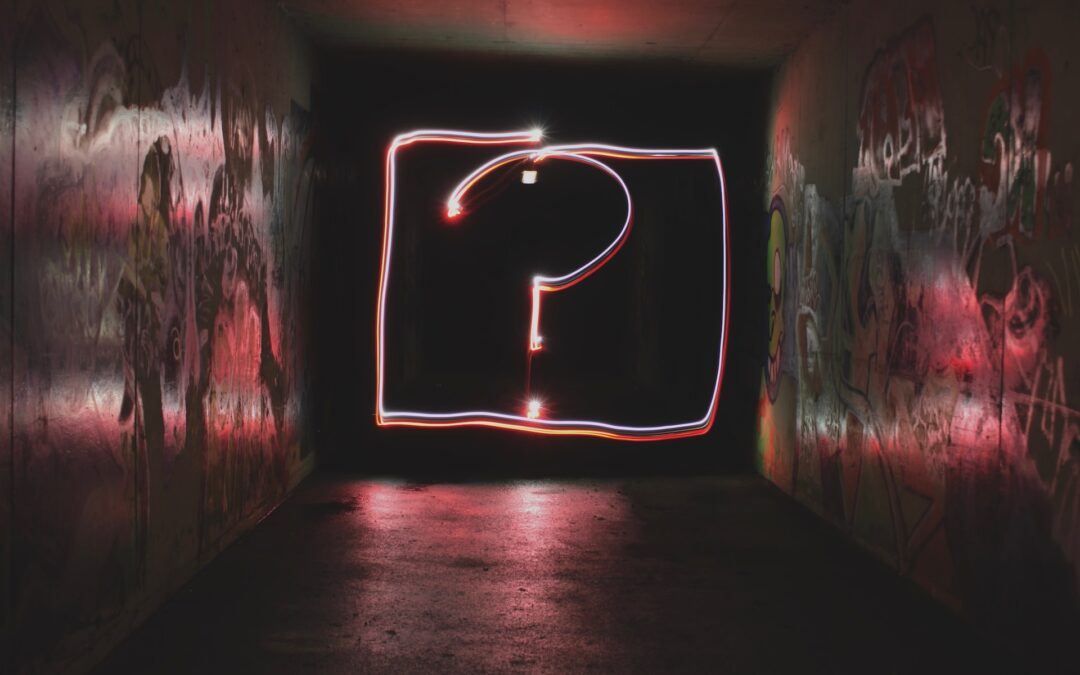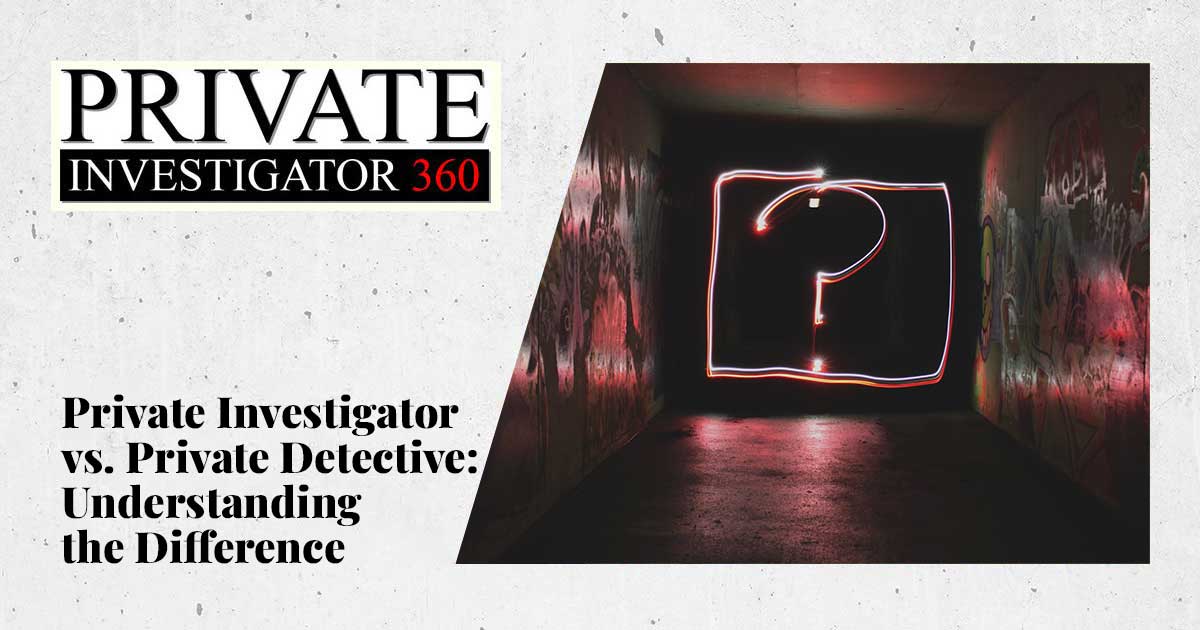Private Investigator vs. Private Detective: Understanding the Difference
Have you ever wondered about the intriguing world of private investigation? The realms of private investigators and private detectives often pique our curiosity, conjuring up images of suspenseful investigations and undercover operations. However, there is often confusion surrounding the terms “private investigator” and “private detective.” Are they the same thing? What sets them apart? In this article, we will delve into the fascinating world of private investigation and shed light on the key differences between private investigators and private detectives.
What is a Private Investigator and Private Investigations?
Private investigators are skilled professionals who are hired by individuals, businesses, or organizations to gather information, conduct research, and solve various types of cases. They work in the private sector and are not affiliated with law enforcement agencies. Private investigators often handle cases such as missing persons, background checks, fraud investigations, and infidelity issues.
Duties and Responsibilities of Private Investigators
Private investigators have a wide range of responsibilities. They employ various techniques and tools to collect information and evidence for their clients. These may include conducting surveillance, interviewing witnesses, analyzing documents, and using advanced technology for data retrieval. Private investigators are meticulous and detail-oriented, as they need to gather accurate and comprehensive information to support their findings.
Licensing and Legal Considerations
In most jurisdictions, private investigators must obtain a license to operate legally. Licensing requirements vary from one location to another, but generally involve meeting certain criteria such as completing specific training, passing background checks, and demonstrating knowledge of local laws and regulations. It is crucial to ensure that the private investigator you hire is licensed and operates within the boundaries of the law.
What is a Private Detective?
Private detectives, on the other hand, share many similarities with private investigators but often work in different contexts. Private detectives are typically employed by law firms, insurance companies, corporations, or individuals seeking assistance with legal matters. They primarily focus on gathering evidence for civil cases, such as personal injury claims, custody battles, and asset searches.
Scope of Work for Private Detectives
Private detectives handle a variety of tasks that revolve around legal matters. They may conduct background checks on individuals, locate witnesses, perform surveillance for legal purposes, and provide litigation support. Private detectives are skilled in conducting thorough investigations that adhere to legal guidelines and are aimed at assisting their clients in building strong cases.
Specialized Knowledge and Expertise
Private detectives often possess specialized knowledge and expertise in specific areas, such as forensic accounting, computer forensics, or accident reconstruction. This specialized knowledge allows them to provide valuable insights and assistance in complex legal cases. Private detectives are also well-versed in the legal procedures and requirements specific to their jurisdiction.
Key Differences Between Private Investigators and Private Detectives
While both private investigators and private detectives share common objectives and investigative skills, their primary difference lies in the context in which they operate. Private investigators generally work in the private sector and handle cases that do not involve legal proceedings, while private detectives focus on investigations related to legal matters and often work in collaboration with attorneys.
Target Audience and Clientele
Private investigators commonly serve individuals, businesses, and organizations seeking information or resolution in personal matters, such as locating missing persons or investigating infidelity. Private detectives, on the other hand, cater to clients involved in legal disputes, including law firms, insurance companies, and corporations requiring evidence for civil cases.
Areas of Expertise
Private investigators’ expertise lies in a broad spectrum of cases, ranging from background checks to surveillance. They possess a versatile skill set that allows them to tackle various investigative tasks. In contrast, private detectives specialize in investigations that are directly linked to legal matters, utilizing their knowledge of the legal system to gather evidence and support legal proceedings.
Conclusion
In conclusion, private investigators and private detectives are two distinct professions within the realm of private investigation. While they share certain skills and methodologies, their focus and clientele differ significantly. Private investigators handle a wide range of cases in the private sector, providing their services to individuals and businesses seeking resolution or information. Private detectives, on the other hand, work primarily on legal matters and collaborate with attorneys to gather evidence for civil cases. Understanding the differences between these two professions will help you make an informed choice when seeking investigative assistance.
You may want to read this: The Process of Hiring a P.I. for a Personal Investigation
FAQs
-
Q: Can private investigators or private detectives arrest individuals?
A: No, private investigators and private detectives do not possess the authority to make arrests. They focus on gathering information and evidence, which is then handed over to law enforcement agencies or legal authorities if necessary.
-
Q: What should I consider when hiring a private investigator or private detective?
A: When hiring a private investigator or private detective, ensure they are licensed, have relevant experience in your type of case, and maintain a high level of professionalism and confidentiality.
-
Q: Are private investigators and private detectives allowed to wiretap phone calls?
A: No, wiretapping is illegal without proper authorization. Private investigators and private detectives must adhere to strict legal and ethical guidelines when conducting their investigations.
-
Q: How long does it usually take to complete an investigation?
A: The duration of an investigation varies depending on the complexity of the case, the availability of information and resources, and other factors. It is best to discuss the timeline with the private investigator or private detective you hire.
-
Q: Can private investigators or private detectives provide testimony in court?
A: Yes, if required, private investigators and private detectives can provide testimony based on their findings and the evidence they have gathered. However, the admissibility of their testimony may vary depending on local laws and court rules.

The goal of this site is simple; to be the most-trusted and best source of information about every aspect of private investigators and private investigations, whether you are looking to do your own private investigation or considering hiring a private investigator.
Paul Baeppler retired as captain from the Cleveland Police Department after over 30 years of service. At the same time, he has also owned and run several private investigation and security businesses licensed in Ohio, California and New York for the past 20 years.
www.clevelandprivateinvestigator.com
www.manhattaninvestigations.com



 Is Video Evidence of Infidelity Admissible in Court?
Is Video Evidence of Infidelity Admissible in Court? The Phone Call
The Phone Call Unveiling the Lie Tactics: Misdirection, Deception, and Distraction
Unveiling the Lie Tactics: Misdirection, Deception, and Distraction Private Investigator vs. Private Detective: Understanding the Difference
Private Investigator vs. Private Detective: Understanding the Difference How to Use a GPS Tracker on a Stalker
How to Use a GPS Tracker on a Stalker The Process of Hiring a P.I. for a Personal Investigation
The Process of Hiring a P.I. for a Personal Investigation